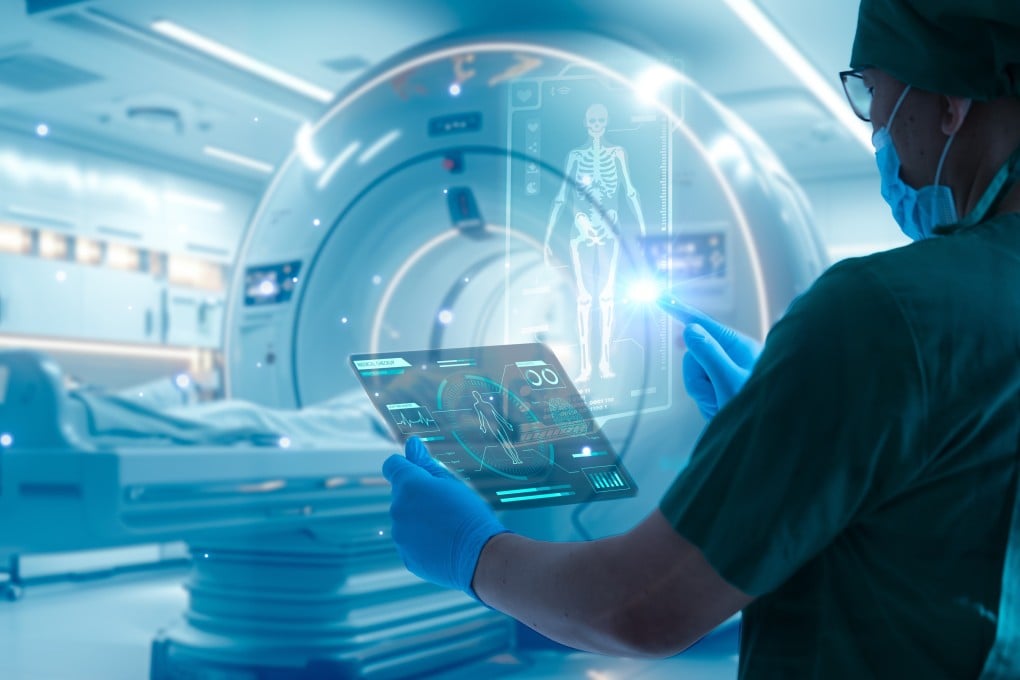DeepSeek AI Gains Traction in Healthcare Amid Concerns
DeepSeek AI is transforming healthcare with advanced capabilities, but raises concerns about accuracy, empathy, and the doctor-patient relationship.

The Rise of DeepSeek in Healthcare: Promise, Peril, and the Human Touch
A growing number of patients now turn to artificial intelligence for health advice, sometimes trusting AI more than their own doctors. This trend is vividly illustrated by the recent story of a woman who described DeepSeek, an advanced AI system, as “humane”—in contrast to her experience with physicians, whom she found “more like machines.” Her reliance on AI highlights a profound shift in how healthcare is delivered and perceived, raising urgent questions about accuracy, empathy, and the evolving doctor-patient relationship.
Background
DeepSeek, developed by Skywork AI, is a family of large language models designed for specialized tasks, including healthcare. The latest iteration, DeepSeek-V3.2-Exp, boasts a novel sparse attention mechanism that allows it to process lengthy medical records and complex patient histories efficiently—capabilities that have long eluded traditional AI systems. Unlike generic chatbots, DeepSeek models are fine-tuned to interpret clinical shorthand, lab results, and even messy handwritten notes, making them particularly attractive for hospitals burdened by data overload.
The technology is not limited to administrative tasks. Research shows DeepSeek is being tested as a diagnostic aid, for instance in the early detection of autoimmune encephalitis (AIE), a condition that is notoriously difficult to diagnose, especially in resource-limited settings. In a recent study, DeepSeek achieved a total diagnostic accuracy of 65% for AIE, with higher rates for specific patient subgroups. While promising, these results underscore that AI is not yet a replacement for human expertise—a fact often lost on the public.
Key Features and Technological Advances
- Efficiency at Scale: DeepSeek-V3.2-Exp processes long medical documents without the crippling slowdowns typical of other AI models, enabling clinicians to query full patient histories in a single interaction.
- Accuracy in Medical Contexts: The system’s OCR (optical character recognition) capabilities accurately extract information from unstructured medical records, including handwritten notes and prescriptions, while maintaining strict privacy standards required by regulations like HIPAA.
- Privacy and Compliance: DeepSeek offers on-premises and private deployment options, ensuring that sensitive patient data never leaves hospital servers—a critical feature for healthcare providers wary of cloud-based solutions.
- Diagnostic Support: Early trials suggest DeepSeek can assist in diagnosing complex conditions, though its accuracy varies and should be interpreted with caution.
Industry Impact: Changing Roles and Rising Expectations
The adoption of DeepSeek and similar AI systems is reshaping expectations in healthcare. Patients increasingly expect instant, personalized answers—mirroring the convenience of consumer tech—while clinicians face pressure to integrate AI tools into their workflows. For hospitals, the promise is clear: faster documentation, reduced administrative burden, and potentially improved diagnostic support.
However, the technology’s rapid advancement has also sparked debate. Some patients, like the woman cited in the original story, feel that AI offers a more “humane” interaction, free from the time constraints and perceived coldness of busy physicians. This perception is both a compliment to AI’s user experience and a critique of modern healthcare’s human elements.
User Experience: Empathy vs. Efficiency
- Patient Perspective: For many, AI chatbots are available 24/7, provide answers in plain language, and never seem rushed. This accessibility can feel more empathetic than a harried doctor’s visit.
- Clinician Perspective: Doctors caution that AI, while helpful for information retrieval and administrative tasks, lacks the nuanced judgment, ethical responsibility, and emotional intelligence required for complex care.
- Accuracy and Risk: Even advanced systems like DeepSeek have limitations. The AIE study, for example, found that diagnostic accuracy was far from perfect and that stepwise input of patient data did not significantly improve results. Misdiagnosis or over-reliance on AI could have serious consequences.
Ethical and Practical Challenges
The growing trust in AI for health advice brings several challenges:
- Informed Consent: Patients may not fully understand the limitations of AI, leading to misplaced confidence in its recommendations.
- Liability: It remains unclear who is responsible if an AI system provides incorrect advice—the developer, the healthcare provider, or the patient.
- Regulatory Oversight: While DeepSeek emphasizes privacy and compliance, the broader ecosystem of health AI is still evolving, with regulators racing to keep pace.
- Human Connection: There is a risk that reliance on AI could erode the doctor-patient relationship, reducing opportunities for meaningful dialogue and holistic care.
Context and Implications
The story of “DeepSeek is humane. Doctors are more like machines” is more than anecdote—it is a symptom of broader societal shifts. As AI becomes more sophisticated and user-friendly, patients are voting with their clicks, seeking comfort and convenience in digital interactions. But technology alone cannot replace the irreplaceable: the human capacity for empathy, ethical judgment, and personalized care.
Healthcare systems must strike a delicate balance. AI like DeepSeek can and should be used to augment—not replace—clinical expertise. Transparent communication about the capabilities and limits of AI is essential. Meanwhile, the medical profession must reflect on why some patients feel underserved by human providers and work to restore trust and connection.
The Road Ahead
DeepSeek’s roadmap includes further advances in model training, infrastructure, and specialization. As these tools mature, they will likely play an even greater role in healthcare, from administrative automation to diagnostic support. Yet, the ultimate measure of success will not be technical prowess alone, but whether AI can enhance—without undermining—the human values at the heart of medicine.



